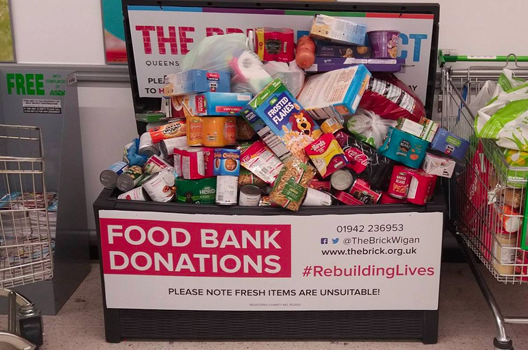
Significant, possibly, insurmountable corporate governance challenges face the UK charities sector
LATEST research suggests that the pandemic and social distancing ensures that charity sector is under threat from a severe cash crisis that places many charities in severe, possibly existential, jeopardy. Indeed, many charities may go to the wall. Most struggle with future uncertainty over social-distancing requirements, severe fund raising difficulties and revenue shortfalls or, even, to effectively to fulfil their existing core activities.
The stats are sobering and deeply concerning: charities overall face a £10bn funding gap; 19 per cent believe that they won’t be able to deliver their services adequately; while 30 per cent expect to make staff redundant. However, our financial, fundraising and moral support along with our sympathies cannot disguise the fact that the impact of Covid-19 has turbocharged, exacerbated and further revealed the poor corporate governance that already plagued charity sector management during the comparative ‘good times’ of pre-virus operations.
An extensive and original survey conducted independently by Henley Business School for my book The Independent Director in Society: Our Current Crisis of Governance & What to Do About It supported by the Association of Chairs (AOC) and the National Council for Voluntary Organisations (NCVO) found significant pre-existing pre-Covid-19 pandemic pressures. Namely:
- 9 out of 10 charities cited lack of resources of people and finance
- over 9 out of 10 charities cited inability to cope with future challenges
- 1 in 2 charities cited lack of client/customer/partner focus as high/very high
- 7 in 10 charities already believed reduced benefits to society is high/very high
- 1 in 2 charities already foresaw loss of jobs
This Henley Business School research also reveals that the charity sector and charity boards were already confronted with very significant, and in many cases, insurmountable corporate governance challenges. These challenges include:
Board competence - many boards are not seen as competent enough to effectively handle the pre-existing, let alone the Covid-19, challenges faced. This is especially true for smaller charities (33 per cent).
Inability to handle sensitive and/or awkward discussions – 25 per cent of smaller charity boards cannot handle these (12 per cent for larger charities).
Widespread failure to embed the spirit & practice of charity governance codes - despite the creation of charity governance codes recognising small and larger charities different realities, there is still significant work to be done to actually embed both practice and spirit of the codes on charity boards.
Charity board diversity continues to be a challenge - especially with regards to ethnic diversity – 91.7 per cent are from a White British/Other White background. Age diversity is also reduced with 35.3 per cent of charity boards aged 65 or more years with an additional 39.7 per cent aged between 55 and 64 years.
Trustee experience at board level is poor – 43 per cent say they have no other board experience. Respondents stated that they devoted relatively the same time and effort to monitoring and control as they did to stewardship and strategy tasks. Indeed, 19 per cent of respondents rate trustees as ineffective in monitoring and control and 25 per cent (or 1 in every 4) rate trustees as ineffective in stewardship and resource provision roles.
Recruitment issues - there are significant deficiencies in the way trustees are recruited, selected, inducted, trained and evaluated. There is urgency in improving these practices across the sector.
Ineffective stewardship from charity board chairs - board chairs role and practice effectiveness is only 64 per cent. A significant percentage of respondents rates chairs negatively on: i) effectiveness in dealing with/removing non-performing or disruptive Board members; ii) conducting thorough annual appraisal of the chief executive; and iii) effectively mapping Board skills against the challenges the organisation/Board faces.
Extremely high sector fragmentation – this has implications for governance and government interventions as well as upon management thinking and practice.
The consequences of all these governance challenges also clearly has dreadful effects on the causes which charities exist to effect, remedy and impact. However, there is hope as my book The Independent Director in Society outlines a number of practical steps that can be taken to improve the effectiveness of the boards of charities. Steps suggested include increased diversity, better chairs, greater training with a focus on strategy and providing more value for clients and, controversially, the payment of trustees. The book also has recommendations for regulators and draw on best practice from other sectors.
Photo credit: The Brick
